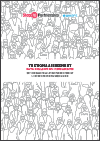What's New
Displaying results 1201 - 1210 of 4913

Resource | Publications,
Sexual and reproductive health and rights (SRHR) are essential for reaching the Sustainable Development Goals (SDGs) for health. The Guttmacher-Lancet Commission found that meeting the unmet need for contraception for 214 million women in developing regions would avert an additional 67 million unintended pregnancies in 2017. If combined with full care for pregnant women and newborns, this reduction in unplanned pregnancies would reduce maternal deaths by 73% (from 308,000 to 84,000) and newborn deaths by 80% (from 2.7 million to about 538,000).
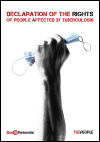
Resource | Publications,
Recognizing that the promotion and protection of the human rights of people affected by tuberculosis is a legal, ethical and moral imperative, as well as of crucial importance for the effectiveness of the response to the epidemic and the relief of suffering among affected individuals and communitie.
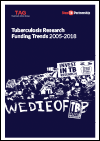
Resource | Publications,
TAG’s latest report on global funding for TB research and development (R&D), published in collaboration with the Stop TB Partnership, presents new data on TB R&D funding in 2018 and analyzes trends in funding since 2005. The report—Tuberculosis Research Funding Trends, 2005–2018—is a critical accountability tool and serves as a barometer of progress in raising support for the scientific innovation needed to eliminate TB.
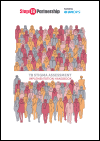
Resource | Publications,
Tuberculosis (TB) is curable but it still kills more people globally than any other single infectious disease. This is mainly due to challenges in accessing quality, affordable and equitable TB services and care. Millions of people affected by TB endure its hardships and manage to survive despite these barriers, which are driven by and heightened by TB stigma. Put simply, to end TB, we must end TB stigma.
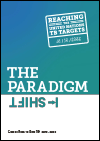
Resource | Publications,
The goal of the Global Plan is to provide a costed blueprint for actions that countries should take to fulfil the targets and commitments in the Political Declaration of the UNHLM on TB and to get on track to end TB as outlined in the WHO’s End TB Strategy and the SDGs.
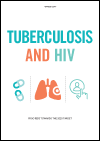
Resource | Fact Sheets,
Tuberculosis (TB) is the top infectious killer worldwide, claiming around 4400 lives a day. TB also remains the leading cause of death among people living with HIV, causing one in three AIDS-related deaths. In 2017, 1.6 million people died from TB, including around 300,000 people living with HIV. However, TB is also preventable and curable.
The latest estimates from the World Health Organization (WHO) show that progress has been made towards the target. Global TB deaths among people living with HIV have fallen by 42% since 2010, from 520,000 down to 300,000 in 2017. However, the estimates also indicate that progress remains uneven and further efforts are needed to address the main challenges, including the need for equity and ensuring that vulnerable groups have access to integrated HIV and TB services.

Resource | Publications,
BSS in the general population and high-risk groups is proposed to be undertaken thrice during the period 2001 – 2005. To provide an independent evaluation of NACP-II activities, an external agency was contracted for BSS.
The present report details the observations of the national baseline BSS survey among the general population, which was conducted in all 32 States and Union Territories of the country. This baseline provides basic information needed to strategize and prioritize programs under NACP-II during its five years of implementation.
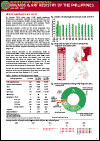
Resource | Fact Sheets,
In January 2019, there were 1,249 newly confirmed HIV-positive individuals reported to the HIV/AIDS & ART Registry of the Philippines (HARP). Sixteen percent (196) had clinical manifestations of advanced HIV infection (WHO clinical stage 3 or 4) at the time of diagnosis.
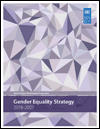
Resource | Publications,
The UNDP Gender Equality Strategy 2018-2021, the third such strategy, provides a road map to elevate and integrate gender equality into all aspects of UNDP's work to reduce poverty, build resilience and achieve peace in communities and territories, helping to accelerate progress towards the 2030 Agenda.






